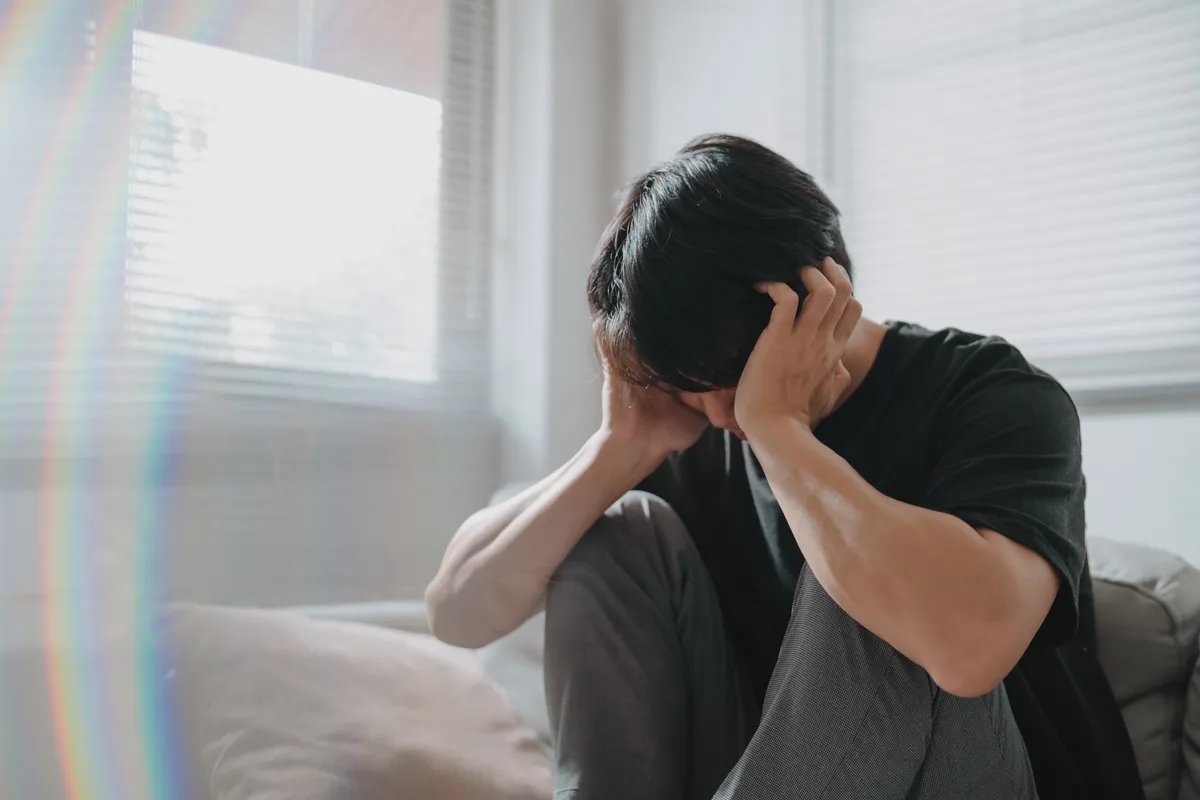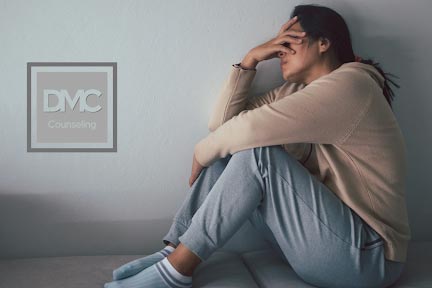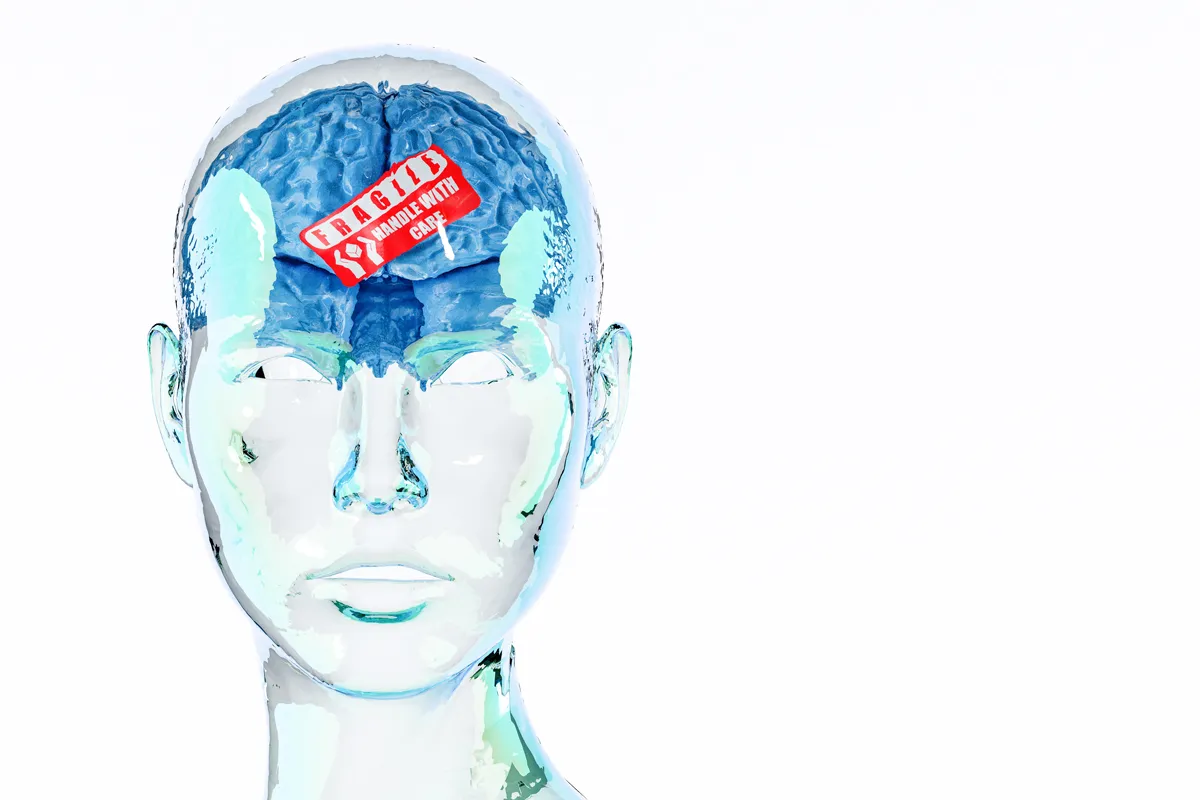If you’re a survivor of trauma you may often feel hopelessness when it comes to relationships. You may not be able to picture getting close to someone or feel as though you would burden someone else. However, you are deserving of love. You are capable of love. Let us guide you through trauma and relationships so you and your partner can thrive together.
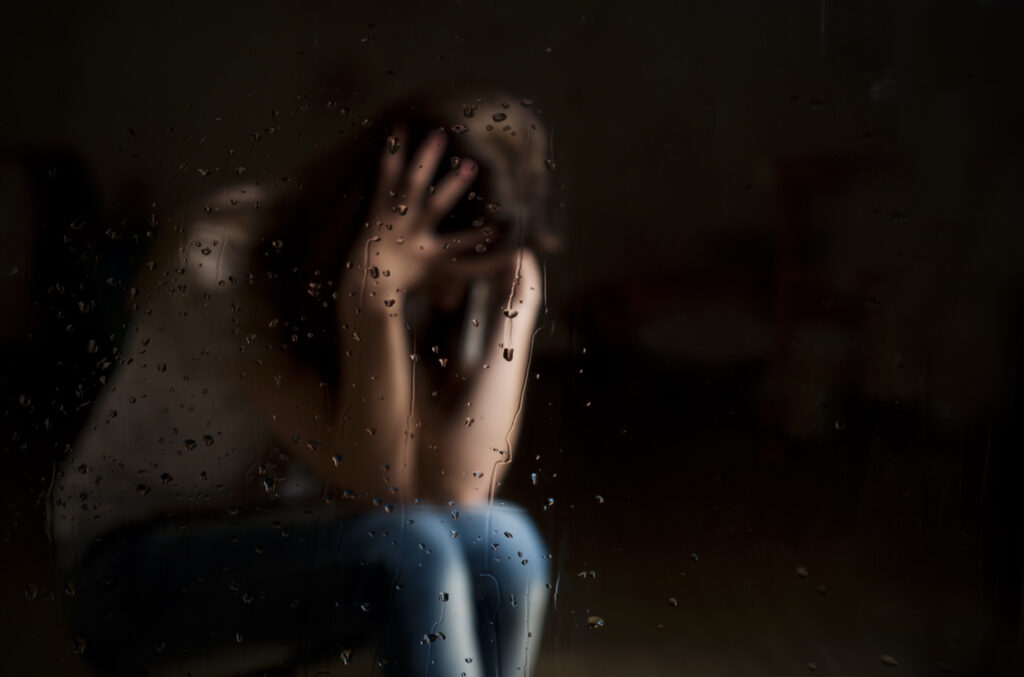
Symptoms of Trauma
When people think of trauma, they often think of Post-Traumatic Stress Disorder (PTSD). But did you know about Complex Post-Traumatic Stress Disorder (CPTSD)? PTSD is the result of a single traumatic event or short lived experience. This could be a car crash, sexual assault, gun violence, etc. CPTSD is the result of a long term traumatic experience or separate traumatic experiences that continue to occur. An example of this could be domestic violence.
People who have experienced trauma and have PTSD or CPTSD can fall into a variety of habits and symptoms. Many times it can lead to other mental illnesses such as depression, anxiety, eating disorders, and compulsive behavior. This may manifest into nightmares, panic attacks, low self esteem, and suicidal thoughts.
Trauma and Relationships: Types of Attachment Styles
Attachment styles impact every part of a relationship and I believe people can overcome the less positive styles with awareness and a willingness. Here are 4 types of attachment styles and how they translate in relationships.
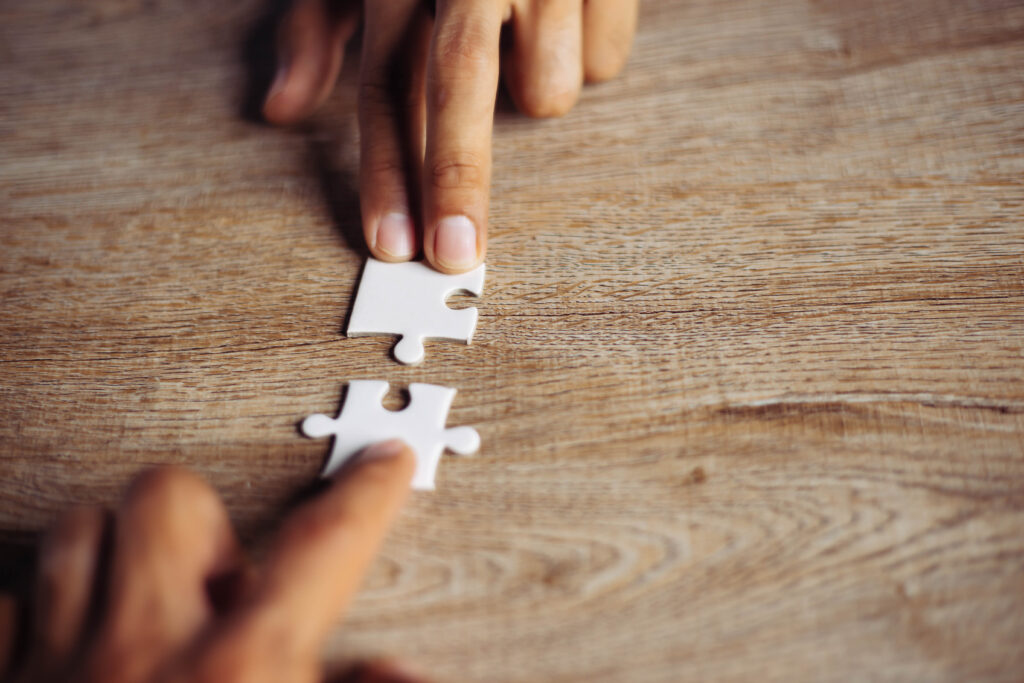
Secure Attachment
Secure attachment is the healthiest type of relationship. This is when someone has a healthy support system. People with secure attachment trust people easily, connect well with other people, and share their emotions. They cope well with life’s difficulties and do not let the fear of rejection or abandonment cripple their relationships.
Dismissive-Avoidant Attachment
This relationship style is often for those who were abandoned or neglected by their support system growing up. It is also known as “insecure-avoidant” attachment. While these individuals had to grow up without a support system (or only a partial support system) they grew up very independent. They avoid intimacy and getting close with new people because they fear losing their independence. If you’re not sure what style of attachment you have, you can take a quiz here.
Fearful-Avoidant Attachment
Individuals who were abused by someone they trusted, such as a parent or family member, often have this relationship style. Because someone they loved caused them pain, they are afraid to be alone while also being afraid to get close to others. They struggle to be intimate and close to people because they swing between being very close and ignoring those they care about.
Anxious-Preoccupied Attachment
When someone’s support system, whether that be parents, grandparents, etc., switch between being loving and spiteful these people tend to have relationships where they come off as clingy. They have been “love bombed” just for someone they love to be neglectful the next moment. This may translate to phrases such as “do you still love me”, “are you mad at me”, and “I feel like I did something wrong”. People with anxious-preoccupied relationship style are more sensitive to emotions which can drive some people away.
How Your Trauma Can Translate in Relationships
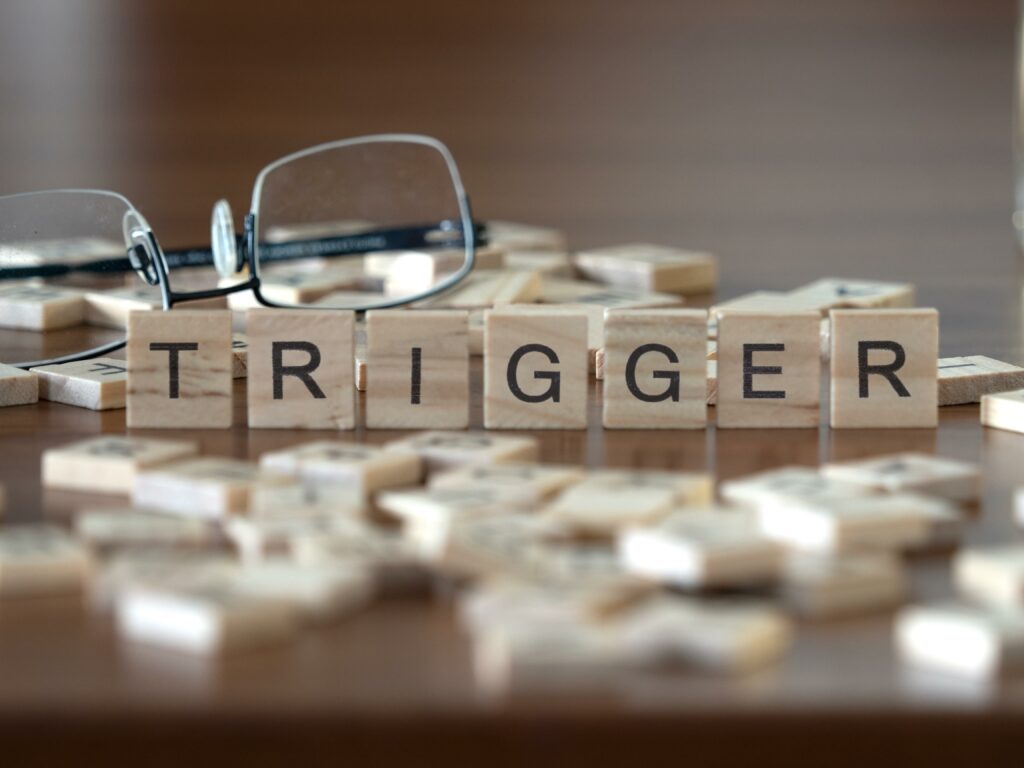
Getting Triggered
If your partner is not aware of your triggers, or you are part of an unhealthy relationship where they trigger you on purpose, you can find yourself feeling re-traumatized throughout the relationship. This can lead you to say something you don’t mean, scream, shut down.
Not everyone is aware of your triggers- you may not even be aware of them! By understanding yourself more, you can begin to understand your triggers and control your reactions to them. Here are some ways to identify emotional triggers. By sharing these triggers with a partner, they can begin to understand how to communicate with you better.
Fight, Flight, Freeze
Not every reaction you will have will be the best. When you do get triggered by trauma in your relationships you may fight, leave, or freeze up. Your reaction may upset your partner. If you fight then you could say something harmful or blow up an argument out of proportion. If you leave you could leave your partner feeling abandoned. If you freeze they could be upset you don’t have a reaction to their emotions.
So, is there a right response? There is never a perfect answer, but listening and communicating with an open heart is the best way to move past an argument. If you do happen to fight, leave, or freeze up- you can always reapproach your partner when you are in a calmer state to explain why you did that, how you truly feel, and how they felt about the situation. Here are some tips for repairing your relationship after a fight.
Not Accepting Love
When you’ve been traumatized, it may be difficult to accept and trust someone you have a relationship with. You may constantly fear for the worst like they don’t love you anymore, you are not attractive enough, they could be cheating, etc. You may monitor their location, social media, and messages to see problems that don’t exist.
This is very unhealthy and is self-destructive to your relationship. Regardless of your trauma, your partner is still entitled to boundaries and privacy. It may be very difficult to stay in a relationship where you don’t do this, but you deserve love without having to worry about these things. Learn how to love yourself and let love in. Step back and wonder- have they really given you a reason to believe what you think or is it because someone else has traumatized you in the past?

Unhealthy Partnerships
Lastly, you may be in an unhealthy relationship. You may make excuses for the person you love and struggle to set boundaries with them. Trauma can leave you insecure and feeling undeserving of love, which is why you may cling to someone who does not treat you with respect.
On the other hand, you may not also be totally ready for a relationship. You may be too traumatized from a past experience to fully understand that this person is not out to get you. Not everyone you form a relationship with will traumatize you and you should not be prepared for the worst case scenario- you should be excited for the best! Here are 6 reasons why you may be stuck in an unhealthy relationship.
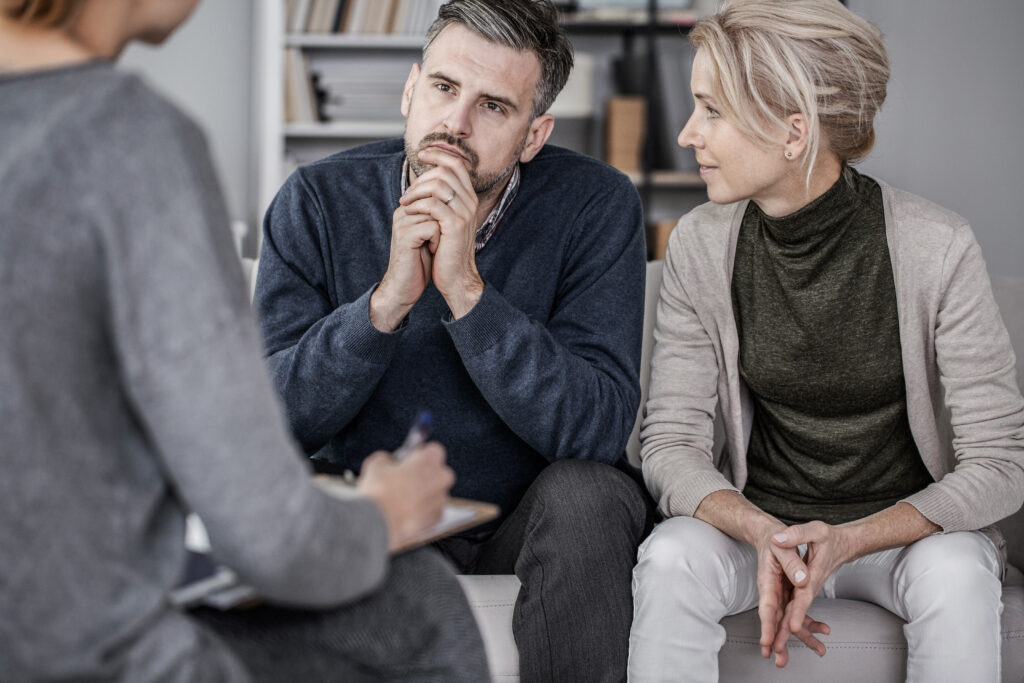
Seeking Help to Manage Trauma and Relationships
If you’re married or in a long term relationship, I would recommend couple’s counseling as an option to discuss with your partner and therapist how to communicate your wants and needs effectively when you have trauma. Your partner can understand your trauma better as well as how they can be a better partner to you. You will also have the opportunity to hear them out and what trauma and relationships they need healed, as well as what you can do to be a better partner.
If you’re single but jumping back on the dating scene, individual therapy could also be beneficial to you. Many people with trauma struggle jumping back into relationships- you’re not alone! I offer individual counseling to help you work through your trauma and put yourself back out there, contact me here!



